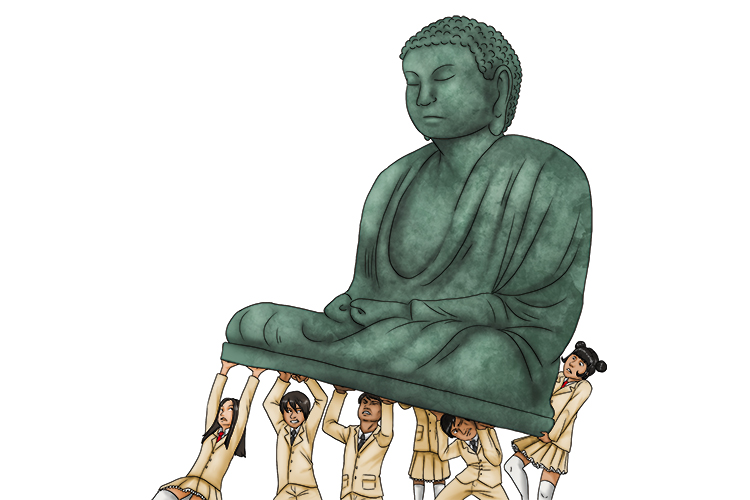Zen – A Japanese school of Buddhism that emphasises the value of meditation and intuition
Note: There are at least 13 Buddhist sects and 56 schools in Japan, such as Nara, Tendai, Shingon, Amida and Nichiren.
To remember the meaning of the Buddhist term Zen, use the following mnemonic:
This Japanese school thinks it is the zenith (zen) of Buddhism. All at this Japanese school hold a statue up to the zenith at the start of the day.

Please note: The kids don't hold a statue of Buddha up to the zenith each morning but it is a great way to remember that zen is a form of Buddhism.
Zen Buddhism began in China, spreading later to Korea and Japan. About 20 per cent of the Buddhist temples in Japan are Zen.
From the mid 20th century, it became popular in the western world.
Some aspects of Zen Buddhism seem almost contradictory: for instance, while it requires lots of discipline, when practised properly it results in total spontaneity and ultimate freedom.
Followers of Zen try to understand the meaning of life directly, without being distracted by logical thought or language.
At its heart, Zen is a stripped-down, meditation-based form Buddhism which does not rely on scripture, doctrine or ritual. Instead, it depends on personal experience passed on from master to disciple through determined training.





